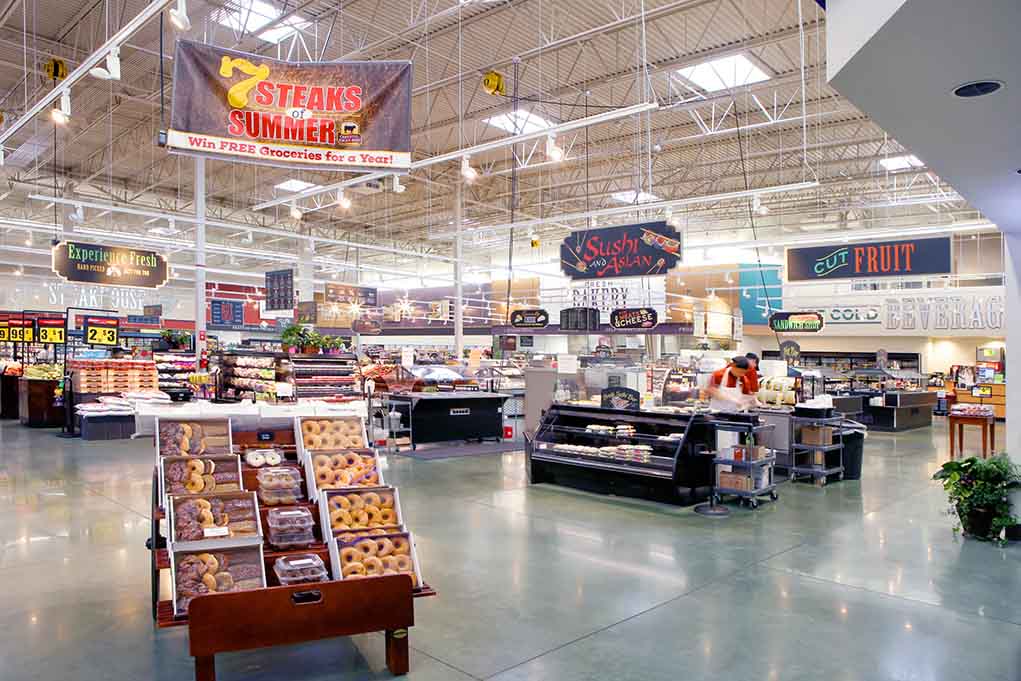
Grocery giant Kroger will shutter 60 underperforming stores as top executives eye efficiency gains while navigating leadership turmoil and the aftermath of a failed $24.6 billion merger with Albertsons.
Key Takeaways
- Kroger plans to close 60 underperforming stores (approximately 5% of locations) over the next 18 months as part of a strategic efficiency plan
- The company took a $100 million impairment charge in Q1 2025 related to the closures but expects a modest financial benefit long-term
- The store closures come amid major corporate turbulence, including the resignation of CEO Rodney McMullen following a personal conduct investigation
- Affected employees will be offered positions at other Kroger locations as the company maintains its full-year financial guidance
- Despite challenges, Kroger is seeing growth in private-label sales and plans to launch 80 new high-protein products
Strategic Closures Amidst Corporate Turbulence
Kroger announced plans to close 60 of its nearly 2,800 stores nationwide over the next 18 months, representing approximately 5% of the grocery giant’s retail footprint. The decision came as part of the company’s first-quarter 2025 financial results, where executives identified these specific locations as underperforming assets that no longer align with future growth strategies. Kroger has already recognized a $100 million impairment charge related to these planned closures, signaling the company’s commitment to moving forward with the operational changes despite the substantial write-down.
The store closures follow significant leadership changes at Kroger, including the abrupt departure of longtime CEO Rodney McMullen. According to reports, McMullen resigned after an internal investigation into his personal conduct, resulting in his forfeiture of $11.2 million in unvested stock options. This executive shakeup comes as Kroger continues to battle Albertsons in court following a federal judge’s decision to block their proposed $24.6 billion merger over antitrust concerns, creating a perfect storm of corporate challenges for the grocery retailer.
Financial Outlook and Customer Focus
Despite the apparent disruption, Kroger’s interim leadership maintains an optimistic outlook on the company’s financial trajectory. First-quarter sales reached $45.1 billion, representing only a slight decrease from the $45.3 billion reported during the same period last year. However, when excluding fuel sales, the company actually saw a 3.2% increase in revenue, driven by strategic price cuts and promotional activities designed to attract inflation-weary shoppers who are increasingly preparing meals at home rather than dining out.
“Unfortunately, today, not all of our stores are delivering the sustainable results we need,” Sargent said on Friday. “To position our company for future success, this morning, we announced plans to close approximately 60 stores over the next 18 months,” said Ron Sargent, Interim CEO.
The grocery chain employs approximately 410,000 associates nationwide and has emphasized that affected employees will be offered positions at other Kroger locations when their stores close. This employee-focused approach aligns with the company’s stated intention to reinvest savings from the closures back into enhancing customer experience, reflecting Kroger’s dual focus on operational efficiency and maintaining service quality during this transition period.
Consumer Trends and Future Strategy
Kroger’s decision-making reflects broader consumer behavior shifts in today’s challenging economic climate. The company has observed seven consecutive quarters where private-label products have outpaced national brands in sales growth, indicating consumers’ increasing price sensitivity. In response, Kroger has accelerated its private-label initiatives while also planning to launch 80 new high-protein products to capitalize on growing consumer demand for nutrition-focused options.
“Kroger is committed to reinvesting these savings back into the customer experience, and as a result, this will not impact full-year guidance,” said Kroger.
While the store closures represent a significant adjustment to Kroger’s retail footprint, the company’s leadership maintains that these changes will not negatively impact its full-year financial guidance. Interim CEO Ron Sargent specifically highlighted that consumers are “eating more meals at home,” a trend that benefits grocery retailers and has prompted Kroger to increase its sales forecast despite the challenging inflationary environment and ongoing corporate restructuring efforts.




